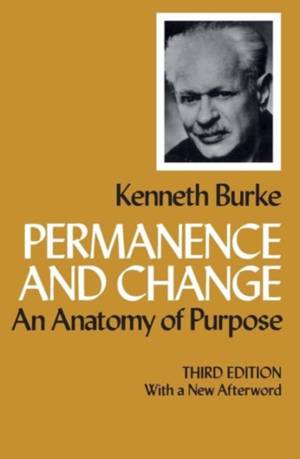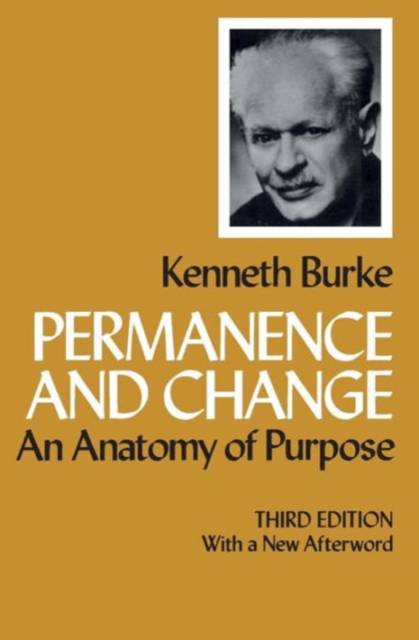
- Afhalen na 1 uur in een winkel met voorraad
- Gratis thuislevering in België vanaf € 30
- Ruim aanbod met 7 miljoen producten
- Afhalen na 1 uur in een winkel met voorraad
- Gratis thuislevering in België vanaf € 30
- Ruim aanbod met 7 miljoen producten
Zoeken
€ 57,95
+ 115 punten
Omschrijving
Permanence and Change was written and first published in the depths of the Great Depression. Attitudes Toward History followed it two years later. These were revolutionary texts in the theory of communication, and, as classics, they retain their surcharge of energy. Permanence and Change treats human communication in terms of ideal cooperation, whereas Attitudes Towards History characterizes tactics and patterns of conflict typical of actual human associations. It is in Permanence and Change that Burke establishes in path-breaking fashion that form permeates society just as it does poetry and the arts. Hence, his master idea that forms of art are not exclusively aesthetic: the cycles of a storm, the gradations of a sunrise, the stages of an epidemic, the undoing of Prince Hamlet are all instances of progressive form. This new edition of Permanence and Change reprints Hugh Dalziel Duncan's long sociological introduction and includes a substantial new afterward in which Burke reexamines his early ideas in light of subsequent developments in his own thinking and in social theory.
Specificaties
Betrokkenen
- Auteur(s):
- Uitgeverij:
Inhoud
- Aantal bladzijden:
- 396
- Taal:
- Engels
Eigenschappen
- Productcode (EAN):
- 9780520041462
- Verschijningsdatum:
- 23/05/1984
- Uitvoering:
- Paperback
- Formaat:
- Trade paperback (VS)
- Afmetingen:
- 136 mm x 202 mm
- Gewicht:
- 412 g

Alleen bij Standaard Boekhandel
+ 115 punten op je klantenkaart van Standaard Boekhandel
Beoordelingen
We publiceren alleen reviews die voldoen aan de voorwaarden voor reviews. Bekijk onze voorwaarden voor reviews.











